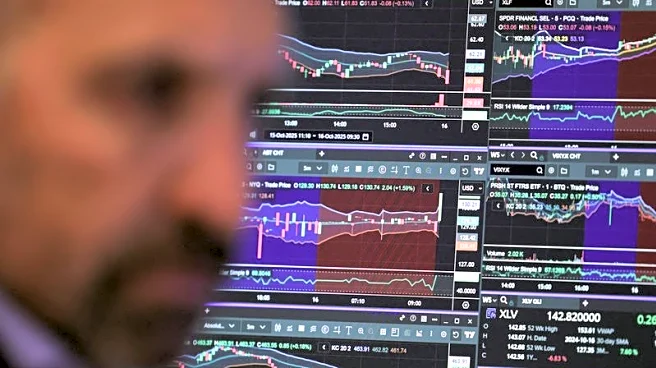What is the story about?
What's Happening?
The 80th session of the United Nations General Assembly in New York has been marked by significant changes in the global aid landscape, following substantial cuts in U.S. foreign assistance under President Trump. This shift has created a sense of urgency and apprehension among global health leaders and aid organizations. Solomon Zewdu, CEO of The END Fund, expressed concerns about the fragmented nature of discussions, emphasizing the need for cohesive action to address health challenges. Varnee Murugan from the U.S. Chamber of Commerce highlighted the renewed focus on involving private-sector companies in global health initiatives. Meanwhile, Atul Satija of the Nudge Institute noted a deeper quality of conversations, as stakeholders seek innovative solutions to mitigate the impact of reduced funding. Peter Sands of the Global Fund described the situation as a 'moment of reckoning,' balancing the challenges of funding cuts with the potential of scientific advancements. Jackie Aldrette of AVSI-USA reflected on the diminished U.S. presence but remained hopeful about continued collaboration.
Why It's Important?
The reduction in U.S. foreign aid has significant implications for global health and development efforts. Countries and organizations that relied on this funding are now compelled to explore alternative strategies and partnerships. The involvement of the private sector, as advocated by Murugan, could introduce new resources and expertise, potentially leading to more sustainable development models. However, the transition away from traditional aid poses risks, particularly for vulnerable communities that may experience disruptions in health and education services. The situation underscores the importance of international cooperation and innovation in addressing global challenges, as highlighted by the diverse perspectives at the General Assembly.
What's Next?
As the global community adapts to the new aid landscape, stakeholders are likely to focus on strengthening partnerships and exploring innovative funding mechanisms. The Global Fund's efforts to secure financing for its next cycle will be critical in maintaining momentum in the fight against diseases. Additionally, the emphasis on private-sector involvement may lead to new collaborations and investment opportunities. The ongoing dialogue at the U.N. General Assembly suggests a commitment to finding collective solutions, despite the challenges posed by reduced U.S. involvement.
Beyond the Headlines
The shift in U.S. foreign aid policy raises broader questions about the role of major powers in global governance and the sustainability of international aid models. The situation may prompt a reevaluation of how aid is structured and delivered, potentially leading to more decentralized and locally-driven approaches. The emphasis on private-sector engagement also highlights the evolving nature of development work, where profit-driven entities are increasingly seen as partners in achieving social goals. This trend could reshape the landscape of global health and development, with long-term implications for how resources are mobilized and utilized.
















